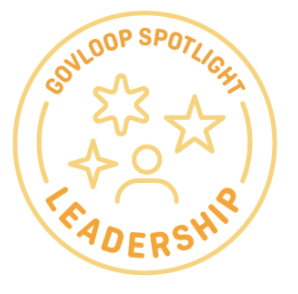 Alas, you made it! You’ve arrived at the last critical competency in the B.E.E.P Skills series. In this final part, we will unearth every leader’s secret weapon — political savviness. A review of the B.E.E.P Skills can be found here: business acumen, emotional intelligence and executive presence.
Alas, you made it! You’ve arrived at the last critical competency in the B.E.E.P Skills series. In this final part, we will unearth every leader’s secret weapon — political savviness. A review of the B.E.E.P Skills can be found here: business acumen, emotional intelligence and executive presence.
According to the Office of Personnel Management (OPM), political savvy is a core competency of building coalitions, the fifth executive core qualification (ECQs). OPM defines political savvy as the ability to “identify the internal and external politics that impact the work of the organization” and “perceives organizational and political reality and acts accordingly.”
If you want to go fast, go alone. If you want to go far go together.
The Challenge With Politics at Work
Do you shy away from office politics? Do you dread having to “play the game” of getting ahead at work? Do you feel inauthentic about developing relationships to get work done within and outside of your organization?
You are not alone. Many leaders don’t feel confident in their abilities to grapple with the political aspects of organizational life. Politics is often perceived as a dirty word in the workplace and comes with a lot of myths and baggage. It doesn’t have to be that way. The reality is, politics is a natural aspect of work. And instead of avoiding it, leaders must strive to better understand it, embrace it and learn from it.
It’s Not About Politics
In a leadership blog from a coaching consultancy, the author asserts that politics has little to do with being a politically savvy leader. In fact, it has more to do with understanding your organization’s culture, the roles and responsibilities of others, and knowing who the key influencers are in each area so that you can skillfully build alliances across differences to achieve a goal.
The Center for Creative Leadership identified six characteristics of politically savvy leaders. Research shows that politically savvy leaders are more successful in their careers and have better career opportunities than those who shy away from opportunities to make important connections.
How to Become a Politically Savvy Leader
If you are still unsure how you can become a politically savvy leader and gain a competitive edge, consider following one of these five strategies.
1) Adopt a new mindset: It helps to change the way you view politics in the workplace. If you adopt a mindset about political savviness that focuses on building coalitions across your organization in order for you to be more successful at work, you’re less likely to think negatively about office politics. Carol Dweck’s research on growth mindsets “Mindset: The New Psychology of Success” is an outstanding resource for this.
2) Start with your network: It can feel overwhelming to think about building partnerships across your organization, especially if you are still learning the landscape for your own work center, let alone another department or organizational sector. Start small. Nurture partnerships with people in your current network first. Then evaluate how you can leverage relationships you already developed to maximize your potential. Spread your network slowly from there. It may help to ask yourself a few questions: Who are the key stakeholders in your network? How can you engage them? And who do they know that can help you?
3) Develop your political savvy skills: Grow more confidence in your ability to network with other leaders to achieve a larger goal by developing your competency in political savviness. One tried and true method is by getting a mentor. Seek out mentors within and outside of your organization who embody political savviness and have a proven track record of getting things done through their abilities to build strong partnerships across differences. Ask to interview or shadow them. Observe their day-to-day interactions with others. Identify a few tips and tricks that can inform your personal development.
4) Focus on the end goal: The ultimate goal of being a politically savvy leader is working with others to meet a goal or accomplish a shared mission, either for your department, organization, community or even your own personal objective. There is a proverbial saying that drives this point home: If you want to go fast, go alone. If you want to go far go together. It’s harder to get things done when we rely only on ourselves and our own resources. Given the complexities of the world of work today, it is unrealistic to lead and work in isolation, and still expect to make a huge impact.
5) Stay true to who you are: You can still get ahead in your career as your authentic self. You shouldn’t have to compromise your values to seize opportunities or be a successful leader. Remember, playing the game of politics doesn’t have to be a zero-sum game.
When viewed as a necessity, political savviness is a leader’s secret weapon for acquiring needed resources, gaining access to information and securing opportunities for their team and organization. So, the next time you’re invited to join a conversation or attend a meeting, consider how you can leverage this opportunity to maximize your leadership potential.
Kima Tozay is a Licensed Clinical Social Worker and subject matter expert on Counseling and Advocacy programs in her role at Navy Fleet & Family Support Center, Everett, Washington. Her government career spans 15 years, starting in the Navy. Kima completed her Masters in Social Work degree from the University of Washington and has held positions with the Veterans Affairs Department (VA) and the Army. Kima’s greatest career accomplishment is receiving the Federal Employee of the Quarter Award for her leadership during the COVID-19 pandemic. She earned an Executive Leadership Certificate from Graduate School, USA. You can connect with Kima on LinkedIn.
Interested in becoming a Featured Contributor? Email topics you’re interested in covering for GovLoop to [email protected]. And to read more from our summer/fall 2021 Cohort, here is a full list of every Featured Contributor during this cohort and a link to their stories.
Photo credit: TienDat Nguyen on Unsplash






Leave a Reply
You must be logged in to post a comment.